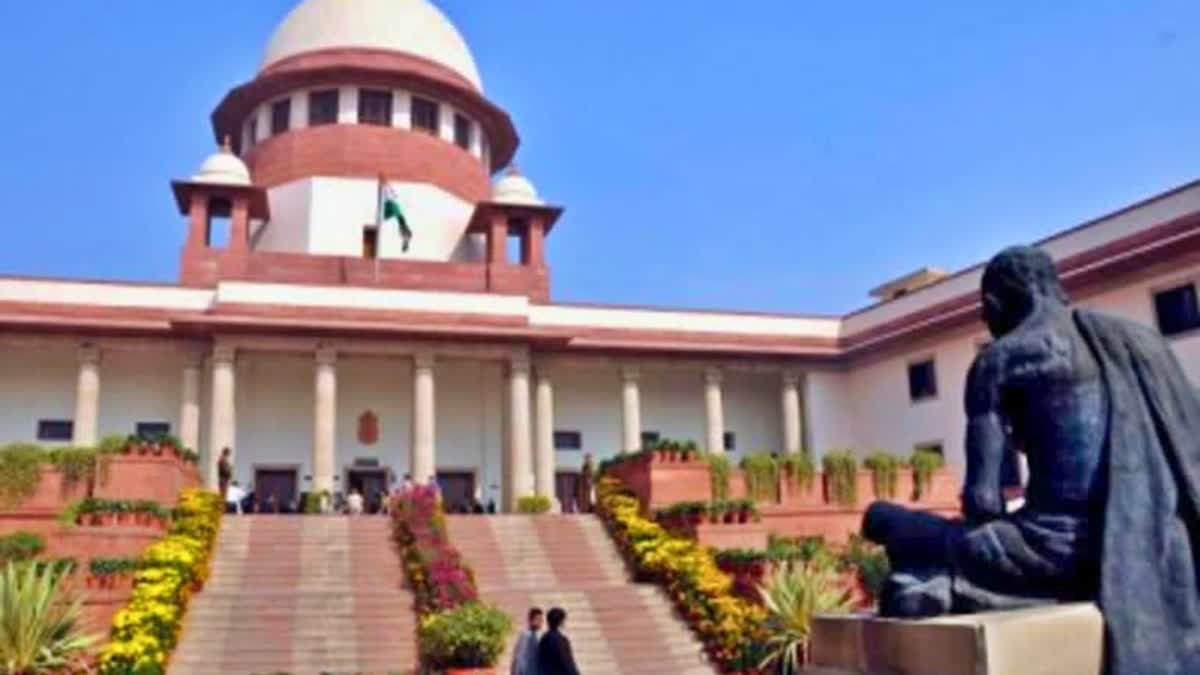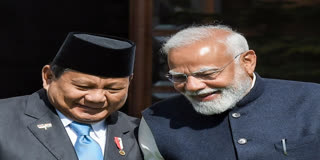SC remands Maoist link case against GN Saibaba back to Bombay HC; says previous order was 'invalid and bad in law'
The case was remanded after the apex court bench of Justices M R Shah and CT Ravikumar found that the order passed by the Bombay High Court was ‘invalid and bad in law’.

New Delhi: The Supreme Court on Wednesday set aside the acquittal of former Delhi University Professor GN Saibaba in a Maoist links case by the Bombay High Court and remanded the case back to the High Court for fresh consideration on merits within four months. The case was remanded after the apex court found that the order passed by the Bombay High Court was ‘invalid and bad in law’.
The Supreme Court bench of Justices M R Shah and CT Ravikumar directed the Chief Justice of the Bombay High Court to place Saibaba's appeal and that of the other accused before a different bench, one that had not discharged them in the previous case
However, the apex court bench clarified that the court had not expressed anything on merits and the High Court would have to dispose of the matter strictly on its merits and in accordance with the law, without being influenced by the earlier order by the Nagpur Bench. All the contentions and defences are available to the respective parties would be kept open to be considered by the High Court. The bench further added that the appeals would have to be placed before a bench other than the one that had acquitted Saibaba and the others to avoid any further apprehensions.
Advocate Abhikalp Pratap Singh appeared for the Maharashtra government and senior advocate R Basant represented Saibaba in the case in the apex court. The question of law, including sanction under the Unlawful Activities (Prevention) Act (UAPA), is to remain open for adjudication by the High Court.
The Bombay High Court had acquitted Saibaba and ordered his release from jail in October 2020, more than eight years after his arrest in 2014. The High Court had noted that the sanction order issued to prosecute the accused in the case under the stringent provisions of the UAPA was bad in law and invalid. The Nagpur bench of the High Court had allowed the appeal filed by Saibaba challenging a 2017 order of the trial court convicting and sentencing him to life imprisonment for offences under provisions of UAPA and the Indian Penal Code.
Apart from Saibaba, the Bombay High Court had acquitted Mahesh Kariman Tirki, Pandu Pora Narote (both farmers), Hem Keshavdatta Mishra (student), and Prashant Sanglikar (journalist), who were sentenced to life imprisonment, and Vijay Tirki (labourer), who was sentenced to 10 years in jail. Narote died during the pendency of the appeal.
Saibaba, who is bound by a wheelchair due to post-polio paralysis, had earlier filed an application seeking suspension of sentence on medical grounds. He said he is suffering from multiple ailments, including kidney and spinal cord problems. In 2019, the High Court rejected his application to suspend the sentence.
The case against Saibaba and the others was that they were working for the banned CPI (Maoist) and were involved in anti-national activities. The prosecution had accused them of propagating Maoist ideology, recruiting and training cadres, and providing logistical support to the Maoist organization. The defence had argued that Saibaba was a victim of political vendetta and that there was no credible evidence against him.
The case against Saibaba has been controversial, with many human rights activists and academics coming out in his support. They have argued that the case is a clear case of political persecution and that Saibaba has been targeted for his political beliefs. The case has also raised questions about the use of the UAPA, a stringent law that has been criticized for its vague and overbroad provisions, which are often used to stifle dissent






